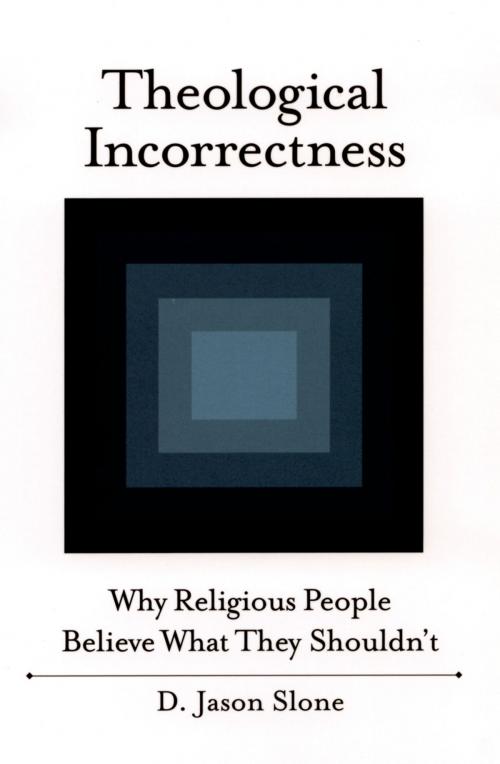Theological Incorrectness
Why Religious People Believe What They Shouldn't
Nonfiction, Religion & Spirituality, Reference, Psychology of Religion, Social & Cultural Studies, Social Science, Sociology, Marriage & Family, Philosophy, Religious| Author: | Jason Slone | ISBN: | 9780190450564 |
| Publisher: | Oxford University Press | Publication: | December 3, 2007 |
| Imprint: | Oxford University Press | Language: | English |
| Author: | Jason Slone |
| ISBN: | 9780190450564 |
| Publisher: | Oxford University Press |
| Publication: | December 3, 2007 |
| Imprint: | Oxford University Press |
| Language: | English |
Why do religious people believe what they shouldn't -- not what others think they shouldn't believe, but things that don't accord with their own avowed religious beliefs? D. Jason Slone terms this phenomenon "theological incorrectness." He argues that it exists because the mind is built in such a way that it's natural for us to think divergent thoughts simultaneously. Human minds are great at coming up with innovative ideas that help them make sense of the world, he says, but those ideas do not always jibe with official religious beliefs. From this fact we derive the important lesson that what we learn from our environment -- religious ideas, for example -- does not necessarily cause us to behave in ways consistent with that knowledge. Slone presents the latest discoveries from the cognitive science of religion and shows how they help us to understand exactly why it is that religious people do and think things that they shouldn't.
Why do religious people believe what they shouldn't -- not what others think they shouldn't believe, but things that don't accord with their own avowed religious beliefs? D. Jason Slone terms this phenomenon "theological incorrectness." He argues that it exists because the mind is built in such a way that it's natural for us to think divergent thoughts simultaneously. Human minds are great at coming up with innovative ideas that help them make sense of the world, he says, but those ideas do not always jibe with official religious beliefs. From this fact we derive the important lesson that what we learn from our environment -- religious ideas, for example -- does not necessarily cause us to behave in ways consistent with that knowledge. Slone presents the latest discoveries from the cognitive science of religion and shows how they help us to understand exactly why it is that religious people do and think things that they shouldn't.















